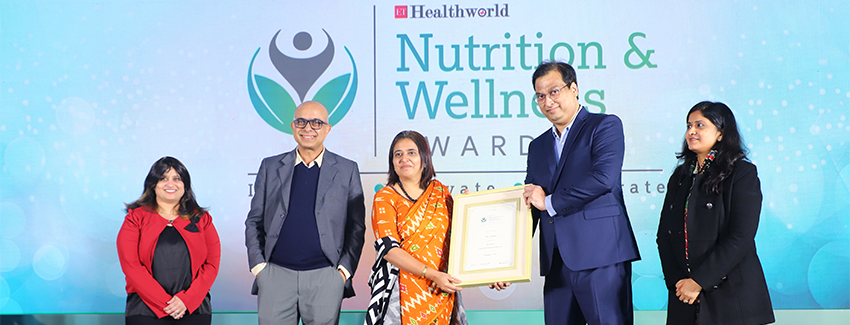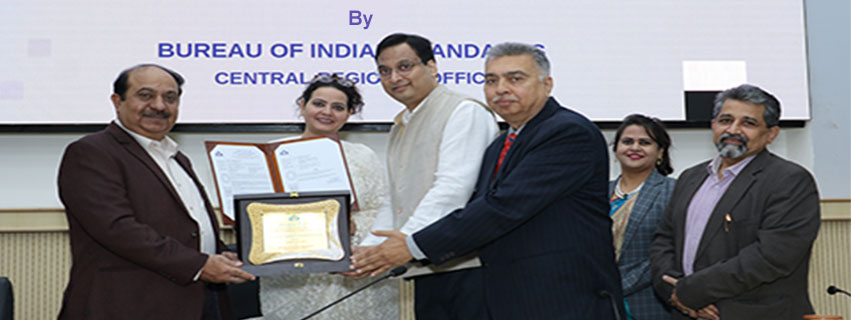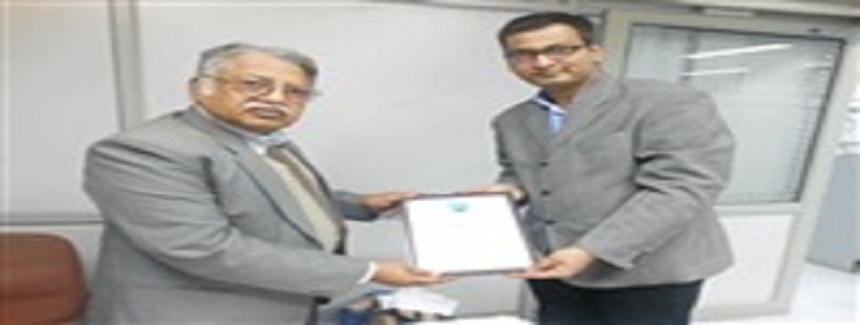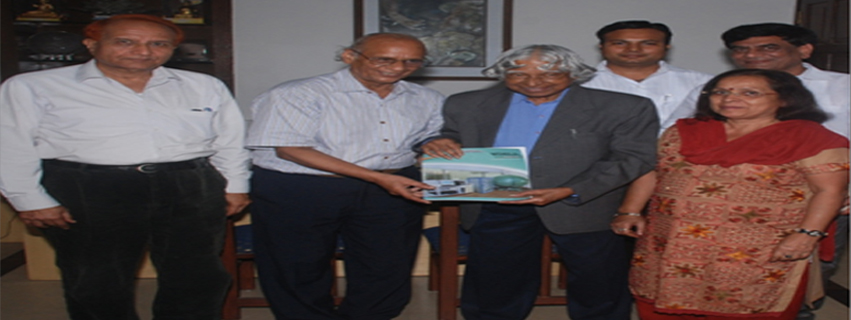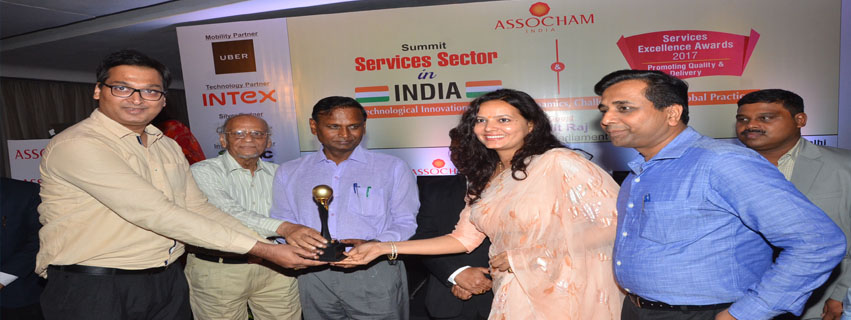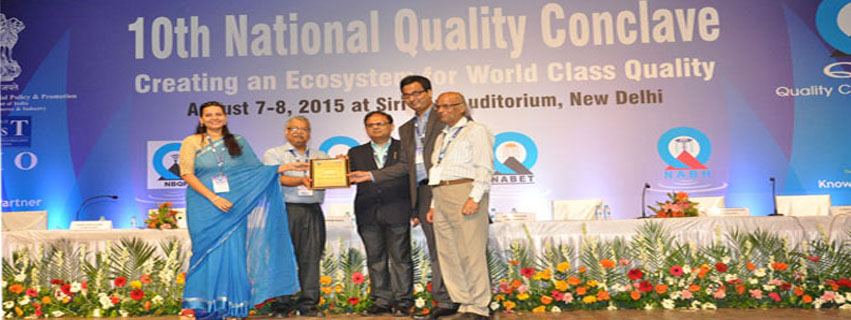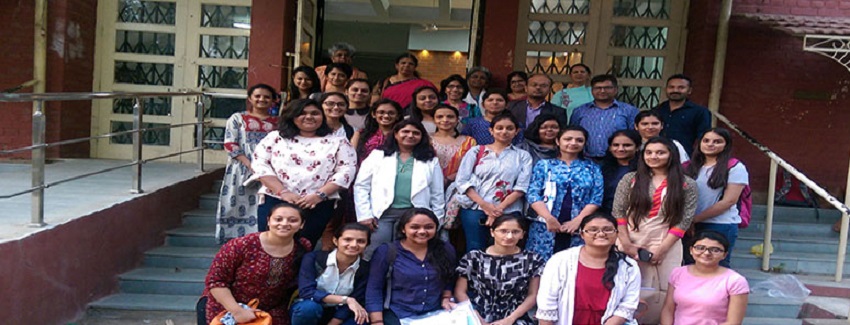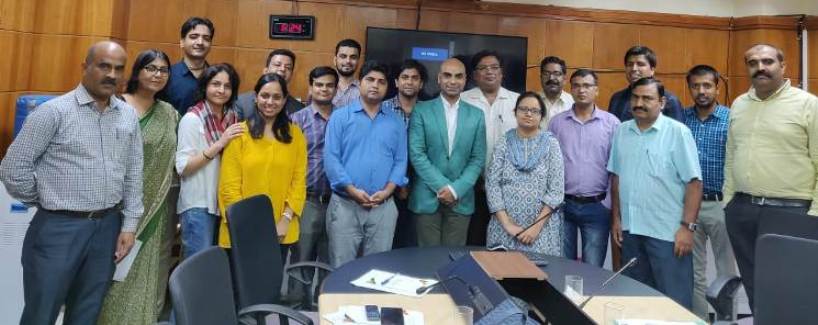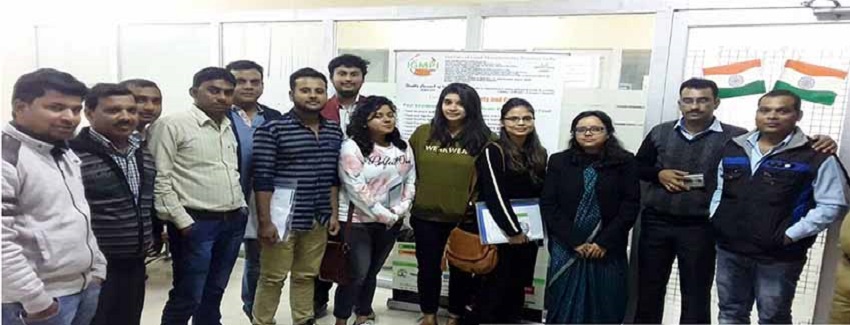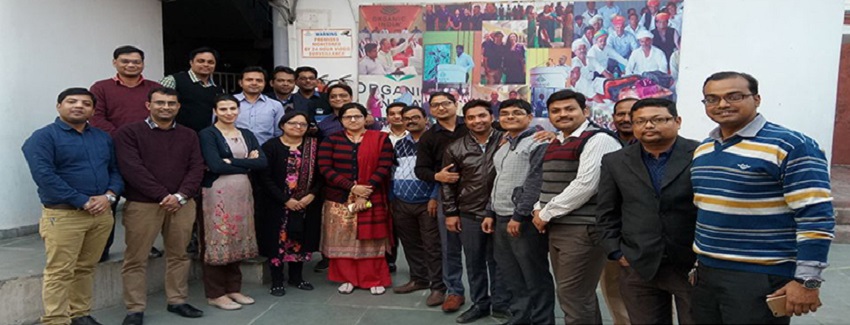(An Autonomous Body Recognized by Ministry of Commerce & Industry, Government of India)
Competency based placement focussed Education | Training | Research | Consultancy
Post Graduate Diploma/Executive Diploma in Food Engineering (PGDFE/EDFE)
Food Process Engineering is an essential applied engineering discipline, particularly important in post-harvest processing. Given the diverse characteristics of food, specialized processing treatments are necessary to ensure safety and quality. This course covers fundamental concepts of food rheology and both thermal and non-thermal processing methods.
Key topics include drying, a primary food preservation technique, food freezing, and several crucial unit operations in food engineering. This course has been designed to impart the fundamental concepts of food rheology, as well as thermal/non-thermal processing of foods. Followed by drying being the most common technique followed for food preservation, a detailed discussion on drying has been incorporated. Additionally, non-thermal processing methods, such as high-pressure processing and pulsed electric fields, are briefly explored.
Food freezing has been covered and finally few important unit operations of food engineering are discussed. A glimpse of non-thermal processing (High pressure processing, pulsed electric field etc.) has also been included in the courses. Food engineering is a multidisciplinary field that combines principles from engineering, science, and food technology to improve the production, processing, and preservation of food. It focuses on the design and optimization of processes and equipment used in food manufacturing, ensuring safety, quality, and sustainability.
Programme Structure
International Affiliation with
Module 1: Introduction to Food Engineering
- Overview of various aspects of food engineering, impact of food engineering over economical growth of FMCG sector
Module 2: Concept of Food Rheology, its Measurements and Rheology of Foods
- Rheological properties of food, rheological processed foods, rheological properties of granular and powders in foods
Module 3: Viscoelastic Foods
- Viscoelastic models, measurement of food texture and instrument for rheological measurement
Module 4: Thermal Processing and Microbial Death Kinetics
- Pasteurization, sterilization, blanching, cooking, D-value, Z-value, thermal death time
Module 5: Evaporation and Concentration
- Single-Effect Evaporators, Multiple-Effect Evaporators, Vacuum Evaporators, Concentration (reverse osmosis)
Module 6: Heat Exchangers
- Shell and Tube Heat Exchangers, Plate Heat Exchangers, Air-Cooled Heat Exchangers, Double-Pipe Heat Exchangers, Spiral Heat Exchangers
Module 7: Drying Technology and Food Dehydration
- Air Drying, Spray Drying, Freeze Drying (Lyophilization), Drum Drying, Microwave Drying, Infrared Drying
Module 8: Food Freezing and Freeze Drying
- Blast Freezing, Cryogenic Freezing, Plate Freezing, effect on texture, moisture content and shelf life estimation.
Module 9: Size Reduction
- Size reduction equipment (Ball mill, roller mill and impact percussion mill), mechanical properties of feed (moisture and temperature)
Module 10: Mechanical Separation Techniques
- Filtration, centrifugation, decantation, sedimentation, screening, magnetic separation, pressure filtration
Module 11: Mixing and Agitation
- Types of mixing, equipment of mixing, mechanical agitation, pneumatic agitation
Module 12: Leaching and Extraction
- Soluble constituent, essential oil and flavour extraction, impact of solvent properties, temperature and contact time, types of extraction techniques (solid-liquid extraction, super critical fluid extraction, ultrasound and microwave assisted extraction)
Module 13: Food processing equipment’s and unit operations
- Equipment for pulping, fruit juice extraction, blanching, dehulling, distillation
Module 14: Non Thermal Processing and Recent trends in food engineering and processing
- Microwave processing, irradiation, pulsed electric field, ultrasound technology, nanotechnology, high pressure processing and micro-fluidization
Module 15: Capstone Project
Who Should Attend:
- Food industry professionals involved in food processing, product development, and quality assurance
- Researchers and scientists exploring the applications of food engineering and processing
- Professionals focused on engineering food related to food industry
- Specialists in food safety and quality management looking to deepen their understanding of innovative technologies
Eligibility
Graduates in any discipline are eligible for our Post Graduate Diploma, Executive Diploma and Professional Certification Programmes.
Programme Duration
The minimum duration to complete the PG diploma programme is 12 months and maximum is 24 months. The minimum duration to complete the executive diploma programme is 6 months and maximum is 12 months.
Programme Mode
Registrations are currently open for regular and Part-time (Online Live Classes) both modes.
Programme Deliverables
A comprehensive study material for all the modules in hard copies ensuring the needs of the audience. The accompanying training material is appropriately aligned with the current Industry’s expectations.
- Assignments for all the programme modules for continuous evaluation and guidance.
- Interactive or online live sessions on all key areas of the programme giving all flexibility to the participants.
- Online Live Classes/Part-time for all the modules will be conducted on the weekends. Moreover, a doubt clearing session will also be scheduled before the examination.
- All the efforts are made by IGMPI faculty members to make the entire programme modules easily understandable.
- Assessment and evaluation for all the programme modules in order to enhance the levels of competencies and skills of the participants leading towards the objective of application in the job.
- At the end of each programme modules, the trainers shall obtain feedback from the participants using specially designed questionnaires.
- All learning and training delivery initiatives shall be conducted in English.
Examination and Certification
Online assessment will be conducted at the end of the programme and upon successful completion, participants will receive a Post Graduate Diploma/Executive Diploma (PGD/ED) in Food Engineering, recognized for its alignment with international standards and industry best practices by Faculty of Food Safety and Quality, IGMPI.
Discipline in Classes and Examination
Every student is required to observe a disciplined behaviour during her/his classes, assessments & examinations and to follow instructions from the Professors. Any act of indiscipline may result into discredit & it will be mentioned in her/his academic report.
Placement Assistance & Corporate Relations
The Institute has partnered with many organizations for providing with placement assistance to its participants. The robust placement cell comprises of senior level Human Resources professionals and Talent Acquisition experts which maintains close links with business and industry. We are engaged in promoting the employability of our participants by maintaining good rapport and relation with HR cell and recruiting managers of leading food and agriculture companies across the globe. The efforts of our placement cell also include helping with professional resume writing, interview skills & conducting mock interviews etc.
In recent months the Institute has witnessed more and more participation from professionals working global food giants like Britannia Industries Ltd., Hindustan Unilever Ltd., Kohinoor Foods Ltd. (Satnam Overseas Ltd.), LT Foods Ltd. (Daawat), McCain Foods India Pvt. Ltd., Mondelez India Foods Pvt. Ltd. (Cadbury), Haldiram’s, Mother Dairy, MTR Foods Pvt. Ltd. (Orkla), Nestle India Ltd., Amul, Parle Agro Pvt. Ltd., Venkys India Ltd., Vimta Labs, Nexus Test Labs, PepsiCo India, Patanjali, Heritage Food Ltd., Kwality Dairy India Ltd., KRBL Ltd., etc.
Future career prospects
Completing a specialized course in food engineering will position individuals at the forefront of innovation in the food industry. This emerging field focuses on enhancing food, safety, and functionality through the application of food engineering and its various applications. Graduates will gain expertise in manipulating materials at the food engineering aspetcs to improve preservation methods, enhance nutrient delivery, and develop novel food packaging solutions that extend shelf life while maintaining nutritional value.
Programme Fee Details
Programme fee details will appear here.
Last date for submitting completed Application Form: 24th Feb 2026.
For further enquiries, call or write to us on:
18001031071
(Toll Free -9:00 am to 5:30 pm IST-except on Central Government holidays)/
info@igmpi.ac.in
GLOBALG.M.P.™ NEWSLETTER
- Tier 2 and Tier 3 Cities Drive Demand for Packaged, Trusted Food Brands
- FSSAI to Require Scientific Evidence for Food Safety Claims from January 2026
- Elanpro Hosts Saksham 2025 to Promote Safer and Greener F&B Practices
- Anmol Industries Unveils Cream Roll and Mango Swiss Roll for Value-Seeking Snackers
Other Programmes
- Agroinformatics (PGDAI/EDAI)
- Agro Processing (PGAFP/EAFP)
- Agrochemical Regulatory Affairs (PGARA/EDARA)
- Agrochemical Technology (PGDAT/EDAT)
- Bakery and Confectionery (PGDBC/EDBC)
- Bakery Science and Technology (PBST/EBST)
- Beverage Technology (PBT/EBT)
- Dairy Science and Technology (PGDST/EDST)
- Fats and Oil Processing (PFOP/EFOP)
- Food Analysis & Quality Assurance (PGFAQA/EFAQA)
- Food Analytical Instrumentation (PFAI/EFAI)
- Food Biochemistry (PGFB/DFB)
- Food Intellectual Property Rights (PGIPR/EIPR)
- Food Microbiology (PGFM/EFM)
- Food Packaging (PGFP/EFP/FPD)
- Food Processing (DFP)
- Food Processing and Preservation (PGFPP/EFPP/DFPP)
- Food Product Management (PGDFPM/EDFPM)
- Food Quality Assurance & Quality Control (PGFAQA/EFQA)
- Food Regulatory Affairs (PGFRA/EFRA)
- Food Safety (PGFS/EFS)
- Food Safety in Hospitality Industry (PFSHI/EFSIH)
- Food Science and Technology (PFGFST/EFST)
- Food Supply Chain Management (PFSCM/EFSCM)
- Frozen Products Processing Technology (PGDFPPT/EDFPPT)
- Fruits and Vegetable Technology (PFVT/EFVT)
- Good Laboratory Practice (PGFLP/EFLP)
- Good Manufacturing Practices (PGFGMP/EFGMP)
- Meat and Seafood Technology (PMST/EMST)
- Nutraceuticals (PGDNC/EDNC)
- Organic Farming and Food Production System (PGOF/EDOF)
- Spices & Plantation Product Technology (PGSPPT/ESPPT)
- Tea Technology (PGTT/ETT)

